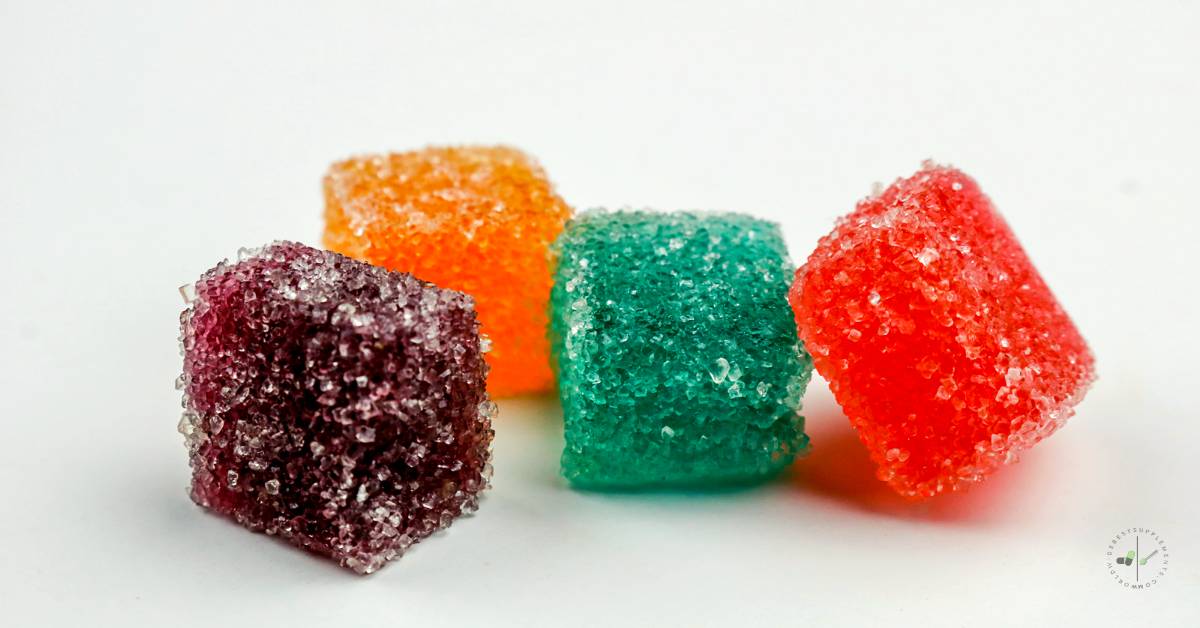The question of whether or not it is safe for dogs to consume melatonin gummies is a common one among pet owners. Melatonin is a hormone that is naturally produced in the body and is used to regulate sleep cycles. It is also available in supplement form, which is often used to help with insomnia and other sleep disorders. While melatonin is generally considered to be safe for humans, it is not known whether or not it is safe for dogs. In this article, we will discuss the potential risks and benefits of feeding dogs melatonin gummies, as well as other forms of melatonin, so that you can make an informed decision about whether or not it is right for your pet.
What is Melatonin?
Melatonin is a natural hormone produced in the pineal gland, located in the brain, that is responsible for regulating sleep and wake cycles. In addition to its role in humans, melatonin has also been used to help dogs with sleep-related issues such as jet lag, age-related insomnia, and noise phobias.
Melatonin is available in both capsule and liquid form and is typically given orally. The most common dosage for dogs is a twice-daily regime, usually in the morning and evening. Depending on the severity of the issue, dosage may need to be adjusted. It is important to speak to a veterinarian before starting your dog on a melatonin supplement to ensure that it is the right option and to determine the right dosage.
Exploring the Benefits and Risks for Dogs
The potential benefits of melatonin for dogs include improved sleep quality, less anxiety, and reduced restlessness. In addition, melatonin may be beneficial in treating certain types of pain, such as arthritis.
Despite its potential benefits, there are some risks associated with giving your dog melatonin. The most common side effects include drowsiness, irritability, and digestive upset. In rare cases, melatonin can also cause heart arrhythmias, seizures, and other serious side effects. Additionally, melatonin has the potential to interact with certain medications, so it is important to speak to your veterinarian before giving your dog any type of supplement.
In conclusion, melatonin may be a beneficial supplement for dogs with certain sleep-related issues, but it’s important to speak to a veterinarian before giving your dog any type of supplement. Careful consideration should be given to the potential benefits and risks of melatonin use in dogs, as well as any potential interactions with other medications.
The Dangers of Melatonin Overdose in Dogs
Melatonin is a hormone naturally produced in the body that helps regulate the sleep-wake cycle. It is also available as a supplement to treat a variety of conditions in both humans and animals. While melatonin is generally considered safe for dogs, an overdose of the hormone can lead to serious health issues.
When taken as directed, melatonin can be beneficial in treating conditions such as anxiety, stress, and insomnia. However, it is important to follow the instructions provided by your veterinarian when giving melatonin to your dog. Improper dosing or over-medicating can lead to a melatonin overdose.
The most common symptom of melatonin overdose in dogs is lethargy. They may seem weak and disoriented, as well as have difficulty walking or standing. Other symptoms can include vomiting, diarrhea, and excessive thirst. If you suspect your dog has overdosed on melatonin, it is important to seek emergency veterinary care.
In severe cases, melatonin overdose can cause an imbalance in the body’s electrolyte levels and can lead to organ failure. Additionally, melatonin can interact with other medications, so it is important to let your veterinarian know about any other supplements or medications your pet is taking before giving them melatonin.
To ensure your dog’s safety, it is important to only give them the recommended dose of melatonin as prescribed by your veterinarian. If you are unsure about the correct dose for your pet, it is best to contact your veterinarian for advice. Additionally, it is important to store melatonin out of reach of children and pets to avoid accidental ingestion or overdose.
Are Melatonin Gummies Safe for Dogs?
Melatonin gummies have become increasingly popular in recent years as a way to help people struggling with sleep disorders. But can these same gummies be used safely for dogs as well? This article will provide an in-depth analysis of the safety of melatonin gummies for dogs, so that pet owners can make an informed decision on whether or not to use them.
When it comes to melatonin and dogs, there is not a lot of scientific research on the use of the supplement in animals. However, the research that has been done suggests that melatonin is generally safe to use in dogs. In fact, melatonin has been used to treat skin allergies and other medical conditions in dogs.
The most common form of melatonin used in humans is a synthetic version, while the version used in animals is usually an extract of the pineal gland. This extract has been found to be more effective at regulating the body’s natural sleep cycle in dogs than the synthetic version.
The dosage of melatonin for dogs will depend on the size and breed of the animal. Typically, the dosage should not exceed 0.3mg per pound of body weight. If a dog is taking any other medications or supplements, it is important to consult with a veterinarian before using melatonin gummies.
When giving melatonin gummies to a dog, it is important to keep in mind that the gummies may contain sugar or other additives that may be unhealthy for the dog. Additionally, it is important to monitor the dog for any side effects, such as restlessness, vomiting, or diarrhea.
In conclusion, melatonin gummies may be a safe and effective way to help treat sleep disorders in dogs as long as they are administered correctly and under the guidance of a veterinarian. However, it is important to remember that the safety and effectiveness of melatonin gummies in dogs have not been studied extensively and pet owners should use caution when giving their pets any supplement.
Is Melatonin an Effective Sleep Aid for Dogs?
It is important to note that melatonin gummies are not a recommended treatment for long-term sleeplessness in dogs. The safety and efficacy of melatonin have not been fully established when it comes to long-term use in dogs and further research is needed to determine the best dosage and frequency of administration.
In cases where a dog is having difficulty falling asleep, melatonin gummies may be a safe and effective short-term solution. This is especially true for short-term use in older dogs since melatonin can help reduce anxiety and promote relaxation.
When considering melatonin gummies for your dog, it is important to talk to your veterinarian first to discuss the safety and effectiveness of this option. The dosage will depend on the size and age of the dog and should be determined by the veterinarian. It is also important to make sure that the gummies do not contain any ingredients that may be harmful to your dog, such as xylitol.
Overall, melatonin gummies may be an effective sleep aid for dogs in some cases and should be discussed with a veterinarian before being used. It is important to remember that melatonin gummies should not be used as a long-term solution and further research is needed to determine the best dosage and frequency of administration.
Conclusion
Based on the available evidence, it is not advisable for dogs to consume melatonin gummies. Melatonin is a hormone and can be toxic to dogs if consumed in large amounts. The dosage in melatonin gummies is not known, making it difficult to determine the safe dosage level for dogs. Additionally, the potential side effects of melatonin for dogs are not fully understood and could potentially be dangerous. Therefore, it is best to avoid giving your dog melatonin gummies.






